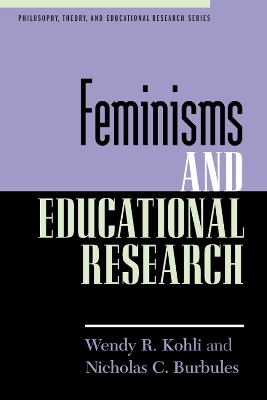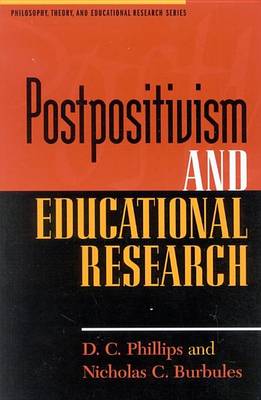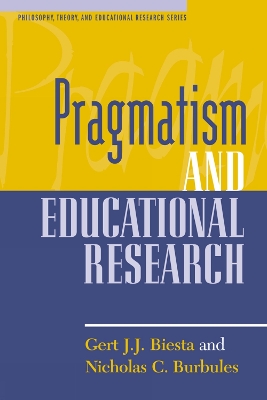Philosophy, Theory, and Educational Research
1 primary work • 3 total works
Book 4
Feminisms and Educational Research
by Wendy R. Kohli and Nicholas C. Burbules
Published 31 December 1999
Feminist theory has come a long way from its nascent beginnings—no longer can it be classified as “liberal,” “socialist,” or “radical.” It has shaped and evolved to take on multiple meanings and forms, each distinct in its own perspective and theory. In Feminisms and Educational Research, the authors explore the various forms of feminisms, tracing their history and their relation to gendered knowledge and identity. Unlike other books on feminism, the authors do not attempt to push that a particular theory is more correct than another, but rather they give a complete overview of each of the forms of feminism.
The authors then couple the philosophical and theoretical ideas of western feminisms with the aims and conduct of educational research, exploring how they interact and influence each other. Focusing on more recent feminists, both in education and related disciplines, the book highlights illustrative examples from research to form a basis of understanding how the different feminisms have changed education.
The authors then couple the philosophical and theoretical ideas of western feminisms with the aims and conduct of educational research, exploring how they interact and influence each other. Focusing on more recent feminists, both in education and related disciplines, the book highlights illustrative examples from research to form a basis of understanding how the different feminisms have changed education.
Postpositivism and Educational Research
by Nicholas C. Burbules and D. C. Phillips
Published 1 January 2000
This volume presents in a forthright and lively way, an account of the philosophical position generally identified as 'Postpositivistic' that undergirds much of mainstream research in education and the related social sciences. The discussion throughout is informed by recent developments in philosophy of science. Authors D. C. Phillips and Nicholas C. Burbules cite a number of interesting examples from the educational research and evaluation literature to illustrate the value of a scientific approach. Many educational researchers aspire to carry out rigorous or disciplined inquiry aimed at producing accurate (and generally 'truthful') accounts of educational phenomena and the causal psychological or social processes that lay behind them. However, many recent critics have argued that it is a mistake to believe that research can yield theories, or advance claims that are true, objective, and value-neutral. In other words, that researchers always work within frameworks that embody important (and often questionable) assumptions about values and the nature of human knowledge. This book argues that , while there is much to be learned from recent critiques, traditional scientific values and assumptions are not outmoded. The authors show students how to implement and benefit from the scientific method in ways that take into account recent critiques.
Pragmatism and Educational Research
by Gert J J Biesta and Nicholas C. Burbules
Published 25 September 2003
This volume offers an overview of the pragmatic understanding of knowledge and the acquisition of knowledge, and its implications for the conduct of educational research. Pragmatism and Educational Research focuses primarily on the work of John Dewey, and examines the relationship between pragmatism and educational research both in relation to research methodology and to a pragmatic educational theory. Biesta and Burbules provide examples of characteristic research questions and research methods and approaches, as informed by a pragmatist outlook. Further, they argue that the major benefit of a pragmatic approach to educational research lies in the possibility of promoting intelligent and reflective action by educational practitioners.


